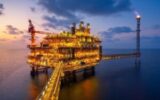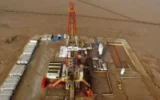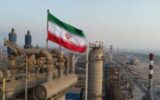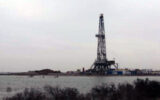
The CEO of Arvandan Oil and Gas Company said: In the South Azadegan field, a plan was implemented to separate low-pressure wells from high-pressure wells and improve the flow conditions of oil pipelines to optimize and increase production, which led to an increase in production in this field of 8,500,000 barrels.

The Deputy Managing Director of the National Iranian Drilling Company for Drilling Projects said: "The National Iranian Drilling Company, by allocating and deploying eight heavy onshore drilling rigs in five provinces of the country, within the framework of cooperation with the Central Iranian Oil Company, is actively participating in the drilling and completion of oil and gas wells and increasing the volume of gas production in the country."

Researchers at Sharif University of Technology have successfully designed and built an indigenous “spiral tubing” system, a high-tech device that was previously imported from abroad. The system is capable of placing tubing up to 6 kilometers deep into oil wells to perform complex operations such as acidizing and well maintenance.

More than a year has passed since the announcement of the Seventh Development Plan; a five-year plan that, by considering major goals such as "increasing production capacity to 4.8 million barrels per day," "increasing petrochemical production to more than 131 million tons per year," and "increasing annual gas exports to more than 40 billion cubic meters," has set a challenging path in the oil and gas sector.

The Minister of Oil stated: "According to expert estimates, achieving the goals of the Seventh Plan requires the provision of approximately $190 billion in financial resources. In the first year, the cash flow and provision of these resources was projected to be $27 billion, of which only $5.5 billion, equivalent to 22 percent, was provided."

The project manager for conceptual and basic studies on supplying water for injection into the oil reservoirs of the Karun basin said: The plan for supplying and transferring water for injection into the oil fields of West Karun was approved at the provincial level.

The Director of Health, Safety and Environment, Passive Defense and Crisis Management of the National Iranian Oil Company announced the explanation of the roadmap for HSE management, passive defense and crisis management in the companies and managements subordinate to this company.

The CEO of the National Iranian Oil Company announced the company's full readiness for a stable supply of gas in the winter season and said: "With the implementation of precise and coherent plans, this year's conditions have improved compared to last year."

Statistics from the Tanker Trackers Institute show that just 3 weeks after Iran's oil exports hit a record high, we are once again witnessing a new and unprecedented record in our country's oil exports.

The CEO of Gachsaran Oil and Gas Exploitation Company announced the realization of 100 percent of the projected production plan in this company and said: "With a 25 percent share in the country's oil production, this company, as the gateway for Iranian oil exports in the south, plays a strategic role in national energy sustainability."










